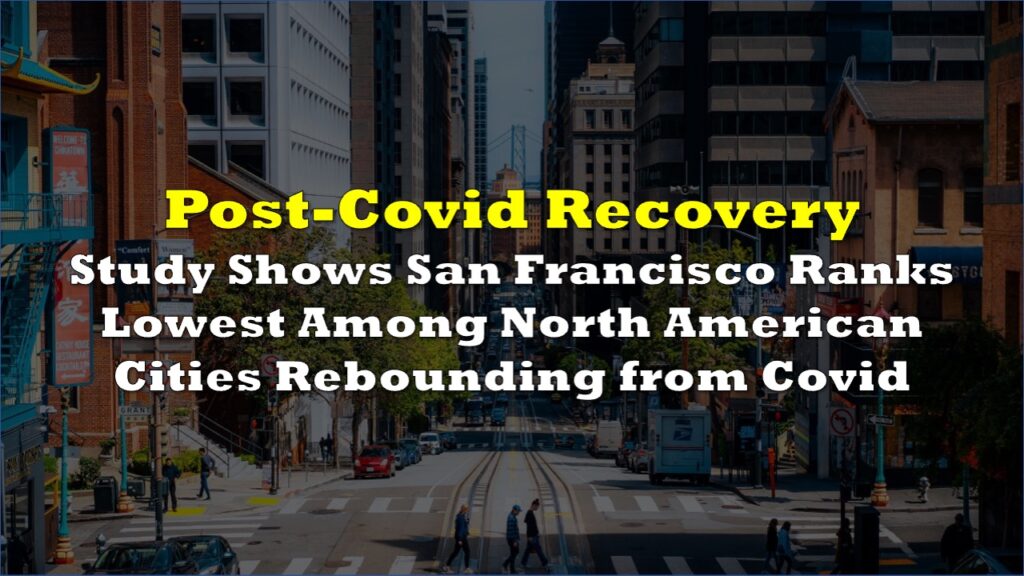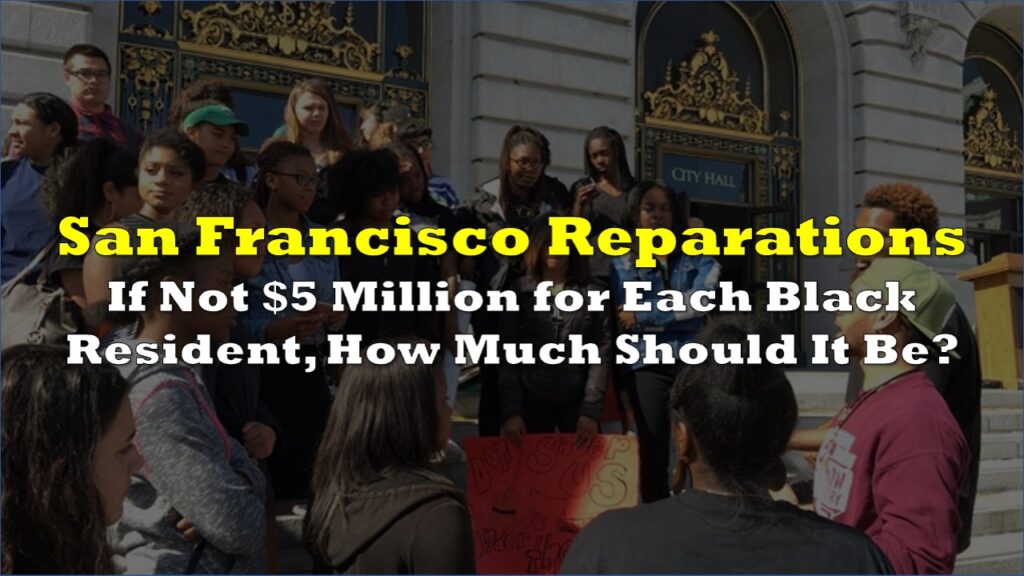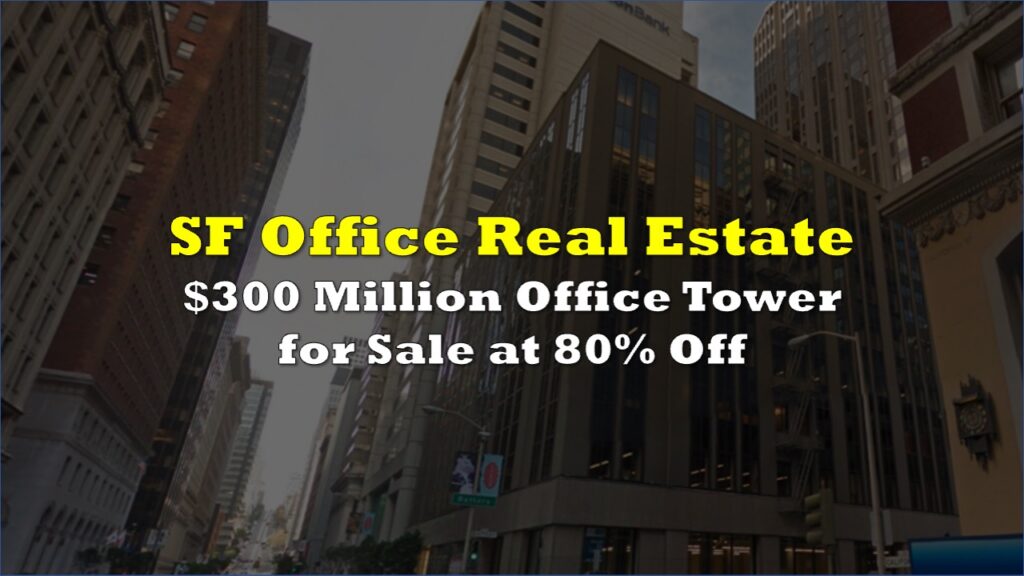San Francisco’s skyline is adorned with landmarks like the Chase Center, the Westin St. Francis Hotel, and the Transamerica Pyramid, but a concerning trend is emerging as their proprietors apply for substantial reductions in their assessed property values, potentially signaling financial challenges for the city.
At the forefront of this trend is the Chase Center, where the property owners are actively seeking a remarkable 58% reduction in the stadium’s assessed value, aiming to slash the current $1.48 billion valuation down to $635 million.
Similarly, the New York-based developer Shvo, who acquired the Transamerica Pyramid in 2020, is pursuing a 53% drop in the assessed value of the iconic building, aiming to lower it from $485.5 million to $227 million.
The Westin St. Francis Hotel is taking a remarkable step, applying for an astounding 90% decrease in its assessed value, seeking to plummet the current $787 million evaluation to a mere $76 million.
While it’s not uncommon for property owners to contest their assessed values in hopes of securing tax discounts, recent years have seen a significant surge in such appeals.
“There’s a crisis out there, and everyone knows it,” warns Peter Fatooh, President of SF Property Tax Appeals. Drawing a parallel to the difficulties of the 2008 recession, Fatooh, who brings over two decades of experience from San Francisco’s assessment appeals board, points out that the commercial sector is grappling with comparable if not more severe hardships.
Fatooh notes a substantial influx of commercial property owners actively seeking tax relief, reflecting a troubling trend. In the fiscal year concluding in July, a staggering 2,873 property assessment appeals were filed with the assessment appeals board, encompassing a total property value exceeding $60 billion.
Notable among the properties seeking significant value reductions are the Westfield San Francisco Centre, aspiring to scale down its value by 60% from $499.7 million to $199.9 million; Macy’s Union Square, aiming for a 50% decrease from $354.3 million to $177.2 million; and the Mission District’s Armory, seeking a 42% reduction from $87.3 million to $50 million.
Earlier this year, Westfield decided to give up its prestigious San Francisco mall following a closure announcement by Nordstrom. The city’s largest shopping center experienced a drastic decline in foot traffic and sales during the pandemic, leading the company to halt payments on a $558 million loan.
Property owners are entitled to yearly applications to adjust their assessed values temporarily based on prevailing economic conditions. Subsequently, these applications are reviewed by an assessment appeals board, which evaluates arguments and reaches decisions. The board has up to two years from the filing date to finalize their determinations.
In the past year, substantial temporary reductions were granted to several properties, including the Westfield San Francisco Centre and apartment buildings at 150 Van Ness Ave. and 100 Van Ness Ave.
While assessment appeals can encompass business assets, real estate overwhelmingly dominates the applications and value adjustments. San Francisco’s primary revenue source hinges on property taxes, which generate over $2 billion annually to fund critical city services, including sanitation, public health initiatives, and law enforcement. Yet, this revenue stream faces significant challenges due to the surge in remote work, leading to downtown office vacancies and hampering the city’s recovery.
Currently, the city’s overall real estate and business property values remain on the rise, with the Office of the Assessor-Recorder reporting a figure of approximately $340 billion for 2023-2024, signifying a $15 billion increase from the previous year.
Fatooh poses a pivotal question: “Is [the assessor-recorder’s] job to protect the tax base because we need that income to run the city or is your job to fairly assess and understand the conditions that these property owners are facing?” This question becomes increasingly pertinent in the face of looming risks. San Francisco’s property tax revenue is predicted to drop between this year and the next, with an anticipated refund of approximately $167 million in property taxes over the subsequent two years due to successful assessment appeals.
The number of property owners requesting value reductions, and subsequently seeking lower tax obligations, has surged annually since 2018, reaching its highest level in nearly a decade during the last fiscal year. Data from San Francisco’s Assessment Appeals Board indicates that property owners are targeting average reductions of 40% in assessed values.
While this percentage might seem substantial, it aligns with the broader decline in property values attributed to the impact of remote work. A study by researchers from New York University and Columbia University estimated a staggering $32.7 billion reduction in San Francisco’s commercial property value between 2019 and 2022.
Recent months have witnessed several commercial buildings changing hands at significantly lower prices compared to their previous valuations. For instance, Presidio Bay Ventures, a San Francisco real estate investor, purchased 60 Spear St. for $40.9 million, representing a 66% drop from the city’s assessed value of $121 million.
Likewise, another high-rise at 550 California St. is reportedly under contract in the low $40 million range, indicating a reduction of over 70% from its assessed value of $155 million.
As the real estate industry grapples with uncertainties surrounding leasing and revenue recovery timelines, widespread uncertainty prevails over the ultimate trajectory of property values. Current indications are not favorable.
“San Francisco doesn’t want to recognize the tremendous loss in commercial property values. There’s too much pride in City Hall. But I’m going to say this as someone with 40 years of experience in the market, there’s no way these commercial properties are on the rise,” cautions Fatooh.
Information for this briefing was found via The San Francisco Standard and the sources mentioned. The author has no securities or affiliations related to this organization. Not a recommendation to buy or sell. Always do additional research and consult a professional before purchasing a security. The author holds no licenses.









